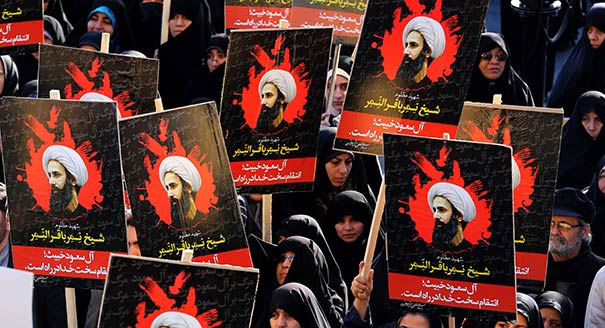Registration
You will receive an email confirming your registration.
What’s driving the spread of Sunni-Shia identity politics in today’s Middle East? How is sectarianism contributing to the region’s instability and conflicts? The authors of a new edited volume, Beyond Sunni and Shia: The Roots of Sectarianism in a Changing Middle East, discussed how geopolitics, governance, media, and other factors are fueling sectarianism.
Agenda
9:00 to 10:30 a.m.
Regional Cases and Geopolitical Sources of Sectarianism:
Saudi Arabia, Iraq, Iran, and Syria
Cole Bunzel, Fanar Haddad, Afshon Ostovar, Heiko Wimmen
Moderator: Frederic Wehrey
10:30 to 10:45 a.m.
Break
10:45 a.m. to 12:15 p.m.
Domestic and Institutional Sources of Sectarianism:
Governance, Political Economy, Clerics, and Social Media
Joseph Bahout, Justin Gengler, Alexander Henley, Alexandra Siegel
Moderator: Marc Lynch
Speakers
Joseph Bahout
Joseph Bahout is a visiting scholar in Carnegie’s Middle East Program.
Cole Bunzel
Cole Bunzel is a PhD candidate in Near Eastern Studies at Princeton University.
Justin Gengler
Justin Gengler is the research program manager at the Social and Economic Survey Research Institute (SESRI) at Qatar University.
Fanar Hadad
Fanar Hadad is a senior research fellow at the Middle East Institute at the National University of Singapore.
Alexander Henley
Alexander Henley is a lecturer in Islam and the study of religion at the University of Oxford.
Marc Lynch
Marc Lynch is a nonresident senior fellow in Carnegie’s Middle East Program.
Afshon Ostovar
Afshon Ostovar is an assistant professor of national security affairs at the Naval Postgraduate School.
Alexandra Siegel
Alexandra Siegel is a PhD candidate at New York University’s Politics Department and a graduate research associate at NYU’s Social Media and Political Participation Lab.
Frederic Wehrey
Frederic Wehrey is a senior fellow in the Middle East Program at the Carnegie Endowment for International Peace.
Heiko Wimmen
Heiko Wimmen oversees the International Crisis Group’s Iraq/Syria/Lebanon project.
This research was made possible through a generous grant from the Henry Luce Foundation.
